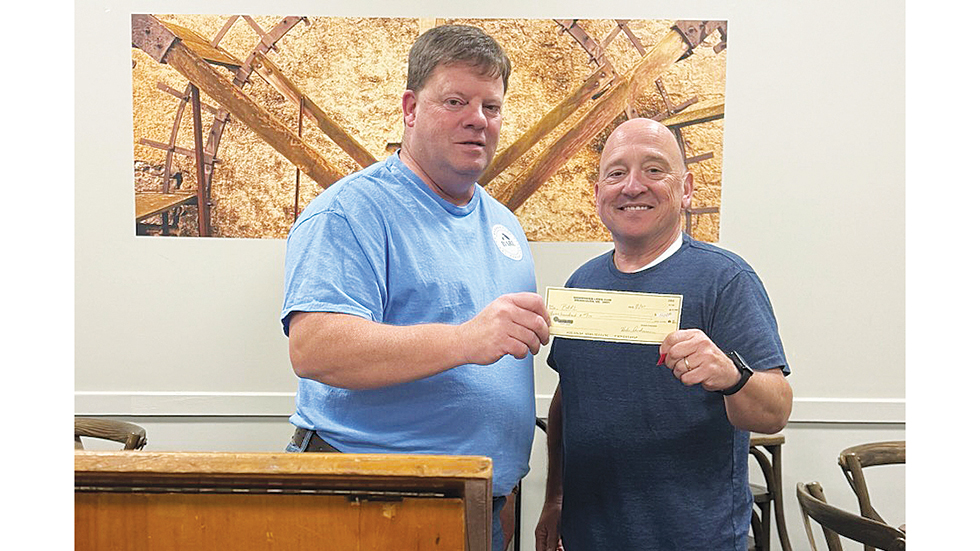Seniors get weather-savvy at ILR event
Published 5:00 am Monday, April 13, 2009
WESSON – A group of seniors are a little more weather-savvyafter spending some time Thursday afternoon with National WeatherService Meteorologist Alan Campbell at Copiah-Lincoln CommunityCollege’s Thames Center.
The afternoon was sponsored by Co-Lin’s Institute for Learningin Retirement and the Copiah County Emergency Management Agency.Campbell spoke to the group on different kinds of severe weatherand what safety precautions are necessary.
ILR Program Coordinator Marilyn Brown said ILR members suggesteda workshop on severe weather, and Copiah County EMA Director RandleDrane was glad to set it up.
Trending
“It’s a factor that affects us all quite often,” she said. “TheILR is always trying to bring in workshops that are helpful to ourmembers, and this seemed like a really good idea.”
Campbell told the group that the National Weather Service is setup to alert communities in case of severe weather of many kinds.This increases community awareness and allows people to takeshelter when the weather becomes violent.
“Our primary goal is to protect your life and property and toprotect you from impending weather hazards,” he said.
Severe weather falls into several categories common to theSouth, Campbell said He mentioned tornadoes, damaging winds, hail,flooding and tropical systems.
Campbell listed ways to cope in situations involving each of thetypes of severe weather, but said floods are the most likely toprove fatal because people do not exercise good judgment when waterbegins to rise.
“A lot of people are killed by floods each year because theymake bad decisions,” he said. “If you’re driving or walking down aroad and the water is flowing or even standing in the road, stopand take an alternate route. Remember the phrase, ‘Turn around,don’t drown.'”
Trending
It only takes 2 feet of moving water to sweep a vehicle off theroad, Campbell said. Even when people assume they can handlethemselves in such a situation, it’s not just their own lifethey’re taking into their hands, Campbell said.
“Not only do you risk your life and the people in your car, butthe lives of emergency workers,” he said. “There are firefightersand police officers and paramedics who are going to try to rescueyou and you could cost them their lives because of your baddecision.”
Another danger that is underrated is that of lightning, he said.Lightning has been known to strike as far away from a storm centeras 10 miles, which means that if thunder is audible, it’s time togo inside.
“If you can hear the rumble of thunder, you can get struck,” hesaid. “And one bolt of lightning can actually be hotter than thesurface of the sun.”
The best way to deal with lightning is to seek shelter, he said,and remember that it will often strike the highest objectavailable. He encouraged people to stay away from trees, to stayout of large open areas like golf courses and fields, and torefrain from using landline phones and appliances.
Tornadoes and straight-line winds are particularly dangerous ifthe only shelter available is a mobile home or vehicle, Campbellsaid.
“It doesn’t take a lot to pick up and roll a trailer,” he said.”If wind speeds are up to 80 or 90 miles per hour and it hits atrailer just right, it’s no problem at all to just roll it.”
And the old admonishment to crack home windows to equalizepressure in the case of a storm is not good advice to follow.
“That just allows those winds to enter your house and tear it upfrom the inside out,” he said.
Campbell advised the group in case of weather emergencies toconsult www.weather.gov, a weather radio or their local broadcaststations for breaking information.
Drane said citizens who want to know more about weather trendsand patterns are welcome to contact his office to be put on ane-mail and text weather alert system that has recently been setup.
“This is a good opportunity for citizens to get involved inbecoming more aware of weather trends and weather safety,” hesaid.





